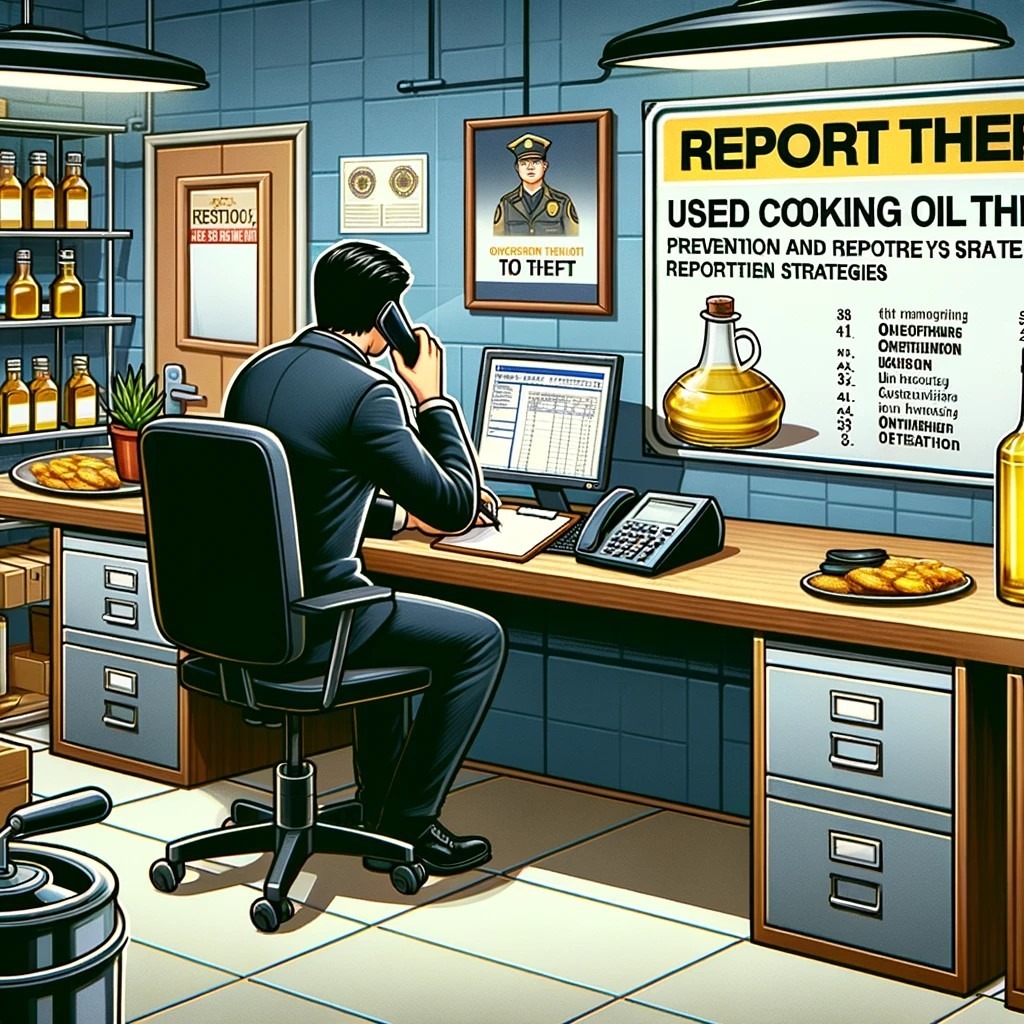Introduction: In today’s eco-conscious world, used cooking oil has surprisingly emerged as a valuable commodity. This shift has brought about an unexpected challenge for restaurants, cafes, and even households: the theft of used cooking oil. The idea might sound unusual at first—after all, who would go through the trouble of stealing something that was once considered waste? Yet, the reality is that as the demand for biofuels rises, so does the allure of used cooking oil for thieves looking to make a quick buck.
The impact of this theft goes beyond the mere inconvenience of lost waste products. For businesses, it represents a loss of potential revenue and disrupts the recycling process which contributes to a more sustainable environment. In this article, we dive deep into understanding why used cooking oil theft is more than just a petty crime, exploring its repercussions and offering thoughtful insights on prevention and reporting. Let’s navigate through these greasy waters of Used Cooking Oil Theft Prevention.

The Rise of Biofuels
Used cooking oil has become a hot commodity in the renewable energy market. Its transformation into biofuel presents an environmentally friendly alternative to fossil fuels, reducing greenhouse gas emissions and contributing to energy sustainability. This green transition has, however, sparked a less savory side effect: the theft of used cooking oil from restaurants and other food establishments.
Economic and Environmental Impact
The theft of used cooking oil isn’t just a minor nuisance; it has significant economic and environmental ramifications. Businesses lose out on potential revenue from selling their oil to recycling companies, which in turn affects the biofuel production chain. Environmentally, the illegal siphoning off of used oil disrupts the recycling process, leading to increased waste and a missed opportunity to reduce carbon footprints.
Preventing Used Cooking Oil Theft
Preventing theft starts with understanding and acknowledging the value of used cooking oil. Here are some strategies to protect your liquid gold:
- Secure Storage Solutions – Invest in lockable storage containers and position them in well-lit, secure areas. Consider surveillance cameras as a deterrent and a means to identify thieves.
- Foster Community Awareness – Educate your staff and local community about the importance of used cooking oil recycling and the impact of theft. Awareness can lead to increased vigilance and reporting of suspicious activities.
- Partner with Reputable Recycling Companies – Work with trusted oil recycling services that offer secure collection methods. Some companies provide locked containers and regular, scheduled pickups to minimize the risk of theft.
Reporting Theft to Local Authorities
If theft occurs, it’s crucial to report it promptly to local law enforcement. Here’s how to go about it effectively:
- Document the Incidents – Keep detailed records of the theft, including times, dates, and any surveillance footage. This information will be invaluable to the authorities.
- Contact Local Law Enforcement – Reach out to your local police department to file a report. Provide them with all the documentation you’ve gathered to help build a strong case.
- Collaborate with Your Oil Recycling Service – Inform your oil recycling partner about the theft. They may offer additional support and advice on preventing future incidents.
Conclusion:
The theft of used cooking oil is a growing concern that affects businesses, the environment, and the biofuel industry. By understanding the value of this resource, implementing robust prevention strategies, and knowing how to effectively report theft, we can protect our assets and contribute to a more sustainable future. Let’s take these steps together, fostering a community that values and protects its resources. Remember, every drop of used cooking oil saved is a step towards a greener planet.
FAQs
- Why is used cooking oil valuable? Used cooking oil is transformed into biofuel, an eco-friendly alternative to fossil fuels. This process reduces greenhouse gas emissions and supports renewable energy initiatives, making the oil a valuable commodity.
- How can businesses prevent used cooking oil theft? Businesses can secure their oil storage areas with lockable containers, install surveillance cameras, and foster community awareness to deter thieves. Partnering with reputable recycling companies for secure oil collection is also crucial.
- What should I do if my used cooking oil is stolen? Document the theft, including the time, date, and any available surveillance footage. Report the incident to local law enforcement and your oil recycling service provider to help prevent future thefts.
At Mopac, we value the relationship we develop with our customers, creating partnerships focused on efficiency and sustainability. Our team offers reliable, consultative services tailored to meet your unique needs. Let us help you make a meaningful impact with our comprehensive collection & recycling solutions.




